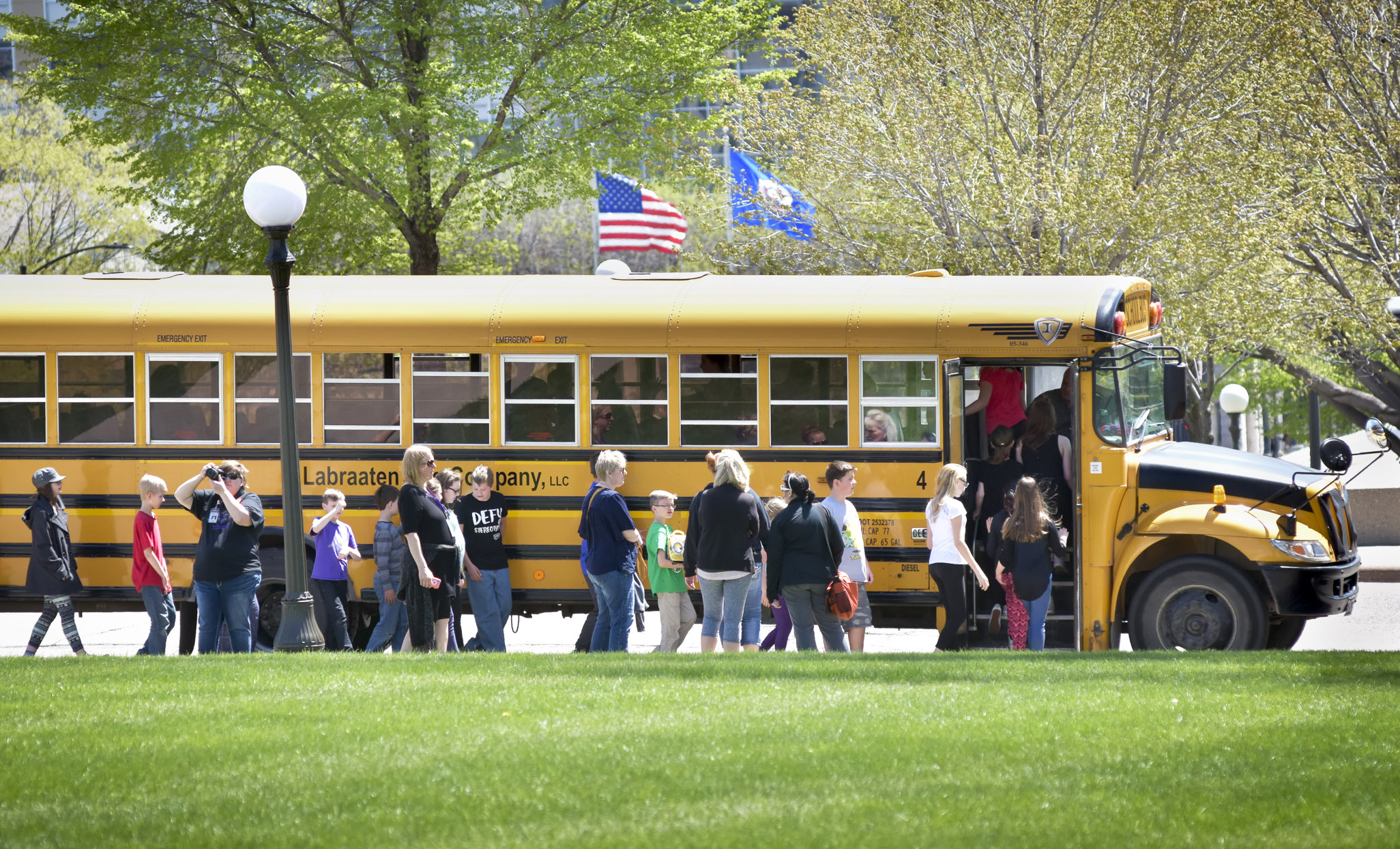Rural school districts could receive more transportation aid to help offset busing costs

Due to the way transportation funding is calculated, some school districts with large but sparsely populated bus routes can find that their transportation expenses significantly exceed the state aid they receive to cover them.
Sponsored by Rep. Julie Sandstede (DFL-Hibbing), HF917 would increase the percentage of transportation sparsity funding that school districts receive to help cover some of their unfunded costs.
The bill was held over by the House Education Finance Committee Tuesday for possible omnibus bill inclusion. The companion, SF408, awaits action by the Senate Education Finance and Policy Committee. Sen. Karin Housley (R-Stillwater) is the sponsor.
When categorical funding for pupil transportation services was eliminated about 25 years ago, a transportation sparsity component was added to general education revenue. The new component, however, did not cover the full cost of transportation for around 80 districts across the state. Since then, a second transportation sparsity adjustment was added to the formula to make up 18.2% of the remaining difference.
“While it was a good start, it didn’t go far enough for some school districts to cover their transportation costs,” Sandstede said. “This results in schools having to take money from their general fund to get kids to school. This takes money away from the classroom and that’s problematic.”
The transportation sparsity formula works well for districts that are truly sparse when measured on a total enrollment basis. However, for districts like Forest Lake Area Schools and Bemidji Area Schools, where there are a large number of students located in a town or city, and the remaining students are spread across large areas, the sparsity aid falls short.
“Because we’re such a large district and have fewer students, we end up with a deficit of roughly $800,000 every year. This is an incredible hit to our budget and dramatically affects our programs and staffing each and every year,” said Bemidji Superintendent Tim Lutz.
To help address this, the bill would appropriate $9.16 million in fiscal year 2022 and beyond to increase the transportation adjustment from 18.2% to 70% of a district’s unfunded pupil transportation costs for the previous year.
“While this still won’t make the remaining districts with deficits whole, it is at least a step in the right direction toward equity,” Sandstede said.
Related Articles
Search Session Daily
Advanced Search OptionsPriority Dailies
Legislative leaders set 2026 committee deadlines
By Lisa Kaczke Legislative leaders on Tuesday officially set the timeline for getting bills through the committee process during the upcoming 2026 session.
Here are the three deadlines for...
Legislative leaders on Tuesday officially set the timeline for getting bills through the committee process during the upcoming 2026 session.
Here are the three deadlines for...